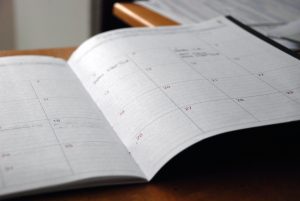Photo by Michael Mouritz on Unsplash
So you’ve decided to play Call of Cthulhu. Maybe you’re a fan of HP Lovecraft, or maybe you’re just looking for a new tabletop RPG to play that has a dark and creepy tone.
Like with most tabletop RPGs, though, it can be hard to figure out what to do in the beginning. Unless you know a group of people already experienced with the game, determining where to start in Call of Cthulhu can be challenging.
I’m writing this to help you out. I’ll give you a basic overview of the process of getting a campaign started from a player’s perspective. If you’re hoping to run the game instead of being a player, consider checking out my Call of Cthulhu keeper tips.
Where to Start
Learn a little about Lovecraftian horror.

Chances are, if you’ve decided you want to play Call of Cthulhu, you already know a thing or two about Lovecraftian horror. But since there’s a small chance you’ve never really heard about it, I think it’s a great place to start for beginners.
I hope you like reading, because the first thing I recommend doing is reading some of HP Lovecraft’s stories. If you’re unfamiliar with him, he was a horror author from the early 1900’s who helped bring the concept of cosmic horror to the forefront of horror in general.
Cosmic horror is this idea that humankind is really small, young, and inconsequential when compared with other things that are much older and larger. It’s kind of an abstract type of horror.
One thing I like to warn people who are reading Lovecraft for the first time, however, is that he was not exactly a great person. A tremendous racist and financial elitist (despite not being particularly wealthy), he often mixed his outdated beliefs into his works.
That being said, I included a bunch of links to various Lovecraftian short stories in my post for Call of Cthulhu keepers. You can read them for an introduction to this popular and unique horror subgenre.
Hit the books.

Your next step should be to get a hold of the core rulebook for the edition you’re going to play. I personally own the Seventh Edition rulebook, and that’s the one I recommend for you if you’re just getting into the game now.
Why? Mostly because it’s easy to read and it’s the most recent edition. Because it’s the most recent one, it will also be a bit easier to find supplemental materials if you decide you want them.
You don’t absolutely need anything other than the Seventh Edition rulebook I linked to. However, if you need a little extra help building your character, you can always get the Investigator’s Handbook, too. It goes into a lot more detail with potential character backgrounds and professions.
Either way, make sure you read both books should you choose to get both. They’ll give you a feel for the system.
If you’re a hands-on learner, you can also consider playing through Chaosium’s free solo campaign, Alone Against the Flames. Rather than just reading a book and hoping you grasp the rules, the solo campaign actually plays out like a choose-your-own-adventure book that uses some aspects of the game’s system and rules. You’ll need to make dice rolls and choices, just like if you were playing the game with a group.
Gather a group of people to play, including a Keeper.

Unfortunately, aside from a handful of solo books Chaosium released, you can’t really play Call of Cthulhu alone. If you’re looking for a totally solo experience, I highly recommend some of the games on our list of the best solo horror board games.
With that in mind, your next step – if you haven’t done so already – should be to find a group of people to play with. One of those people should be the designated Keeper (DM), if you’re not the person who’s going to be running the campaign.
Unless you already have a bunch of friends who have agreed to play, finding a group is oftentimes easier said than done. I’d recommend starting by asking your close friends first. Assuming they don’t want to play, you can try reaching out to local gaming stores.
Fortunately for you, you live in the digital day and age. If you live in a sparsely populated area or don’t have friends who want to play with you, you can always turn to TTRPG sites. One I’ve used to find a group before is Roll20. You can also turn to sites like Reddit to find groups, too. They have a specific subreddit for this very purpose called r/lfg.
Start cooking up a character concept.

If you’ve got a group ready and you’re feeling comfortable with the idea of diving in, I suggest beginning to make a character at this point. The first step in that process is thinking about a character concept.
You can do this on your own, but I think it’s sometimes best to do this in tandem with your group. Call of Cthulhu is not designed to be a forgiving game, so you probably want to be sure your party complements each other.
You’ll also need to figure out what kind of timeframe your game will take place in to proceed. Many people like to play the game in the 1920’s, in which case, you can’t exactly design a hacker character. However, there’s no reason you couldn’t have a modern campaign, a future campaign, or even a medieval campaign if you really wanted to.
With that in mind, take a look at the occupations in the rulebook or Investigator’s Handbook. Your occupation is what your character does for a living, and it determines the types of skills you can have. If you’re looking at the Seventh Edition rulebook, then you can find this information on page 40. The Investigator’s Handbook has occupations starting on page 66.
Keep track of occupations that interest you, and make sure you take note of ones that fit in with your game’s designated time period. Of course, if you’re creative, you can probably modify each occupation to fit into different eras.
I feel like a lot can fall into place once you pick your occupation. But if you’re still struggling with more flavorful things like your backstory, I can’t recommend the random tables in the Investigator Handbook enough. Starting on page 53, the book has a bunch of tables you can roll a d10 for to generate a handful of random traits, such as religious beliefs and important people.
As far as rolling your stats goes, I feel like that could be a whole separate article. I’ve already rambled in this section enough. I might write about it in detail at some point, but in the meantime, I suggest watching this Don’t Stop Thinking video, which will walk you through the process.
Get your character down on a sheet.

Got a character concept in mind? Great, you’re ready to move on to the next step: getting your character rolled and put on a sheet.
Character sheets are pretty easy to find. You can get a bunch of different character sheets on the Chaosium site, and some of them will even automatically calculate values for you.
You’ll notice that, right at the top of the page, they have character sheets designed for different eras. Make sure you choose Modern if you’re playing in, well, the modern times. The other character sheets are clearly marked for the 1920’s.
Schedule some sessions.

The final step is getting some sessions scheduled. This can honestly be harder than it sounds. You and your friends likely all have different schedules, so coordinating can be surprisingly difficult.
My opinion is that much of the scheduling should be done by whoever the Keeper is, though. Because they’re writing the stories for each session, it’s kind of up to them to figure out a time that works best for them to fully portray their world.
Hopefully, you and the other players have similar schedules and days off. If not, try using a poll to vote on the day that works best for everyone. When a day is picked, you can all work together to decide on a time of day that also works well.
I would recommend playing regularly, if possible. Speaking from personal experience, I can tell you that it’s easy to get really out of habit if you take extended breaks in between each session, which leads to you forgetting how to play the system. One popular frequency is weekly, but you could easily do biweekly or monthly.
I also suggest having at least one session that’s sort of like a “session zero.” This is where everyone gets together to work on their characters and discuss goals with the Keeper. Not only can it give the Keeper some ideas for your campaign, but it also gives them the opportunity to address any questions you might have or make any rulings about characters.
Call of Cthulhu FAQs
What do you need to play Call of Cthulhu?
Other than a good attitude, you might be wondering as a beginner if there’s anything else you need to play the game. Honestly, I think the most important thing is your imagination. Call of Cthulhu is a game that largely takes place in the theater of the mind.
Aside from that, of course, there are some supplies you should take with if you’re playing the game in person. Those supplies include the following:
- A set of various types of dice.
- Penciles
- Your character sheet.
- A notebook for note-taking, if necessary.
- The core rulebook.
- If your group uses miniatures, feel free to bring one representing your character.
This all changes if you’re playing exclusively online, which may be the case in this age of social distancing. If you’re social distancing, you’ll basically just need virtual versions of the aforementioned items, most of which could just be apps on your phone.
Here are some apps or software I’d recommend using:
- Voice communication software (Discord, Zoom, Google Hangouts, etc.).
- Calculator
- Dice-rolling app (You can also roll dice in Google by entering, “Roll D10/D20/D4” or whatever die you need).
- Character sheet.
- The core rulebook. (You can have a PDF in a shared Google drive between all players if you have a virtual copy.)
- Word processing software for taking notes.
How does Call of Cthulhu work?
Those who are new to tabletop RPGs will often wonder how the heck they’re supposed to work. Up until recently, playing these types of games was kind of frowned upon and many assumed that only the cringiest people were into them. (Think of that negative stereotype that used to be associated with DnD players, for example.)
For that reason, if you’ve never played a TTRPG like Call of Cthulhu, you could very well be imagining a strange evening of people dressing up in costumes together while they pretend to be fictional characters. Although some people can get really into the role-playing aspect – to the point where they would wear appropriate costumes – that doesn’t have to be the case.
The best way to envision how a TTRPG works is by imagining it as a choose your own adventure book. Only, instead of being limited to pre-written options in a book, you can pretty much do anything within the bounds of your imagination (and Keeper’s patience!).
One person works as the Keeper of the Lore, who describes the story, settings, and people in their world to the others in the group. The others are players. Each one has a character they’ve created to play through in the Keeper’s story. Together, the group goes through encounters. It could be solving mysteries, fighting an eldritch horror, or exploring ancient ruins. Again, your imagination is the limit here.
How do you make a Call of Cthulhu scenario?
If you’ve stumbled across this article as a potential Keeper, one question you probably have is how to write a scenario. The good news is, I’ve already written an article addressing that topic in a bit more detail.
You can check out my Call of Cthulhu Keeper tips for more information on crafting a campaign your players won’t soon forget.
Is Call of Cthulhu worth playing?
So, is Call of Cthulhu worth your time? Like any tabletop RPG, I think the answer largely depends on the people playing.
I’ve played what I feel are amazing systems with people that I just didn’t feel comfortable with. On the other hand, I’ve played broken or convoluted systems with experienced and beginner-friendly players and had a great time.
Overall, I think Call of Cthulhu is a fun system, especially for horror lovers. But what’s really going to make or break your experience is having a Keeper and team of players that simply mesh well.
Wrap Up
Getting into any new system can be intimidating. But if you follow the basic steps I outlined in this post, you’ll get the hang of Call of Cthulhu in no time. Just remember not to be too hard on yourself. Give yourself and your fellow players time to adjust to the system and it will eventually become like a second nature to you.
